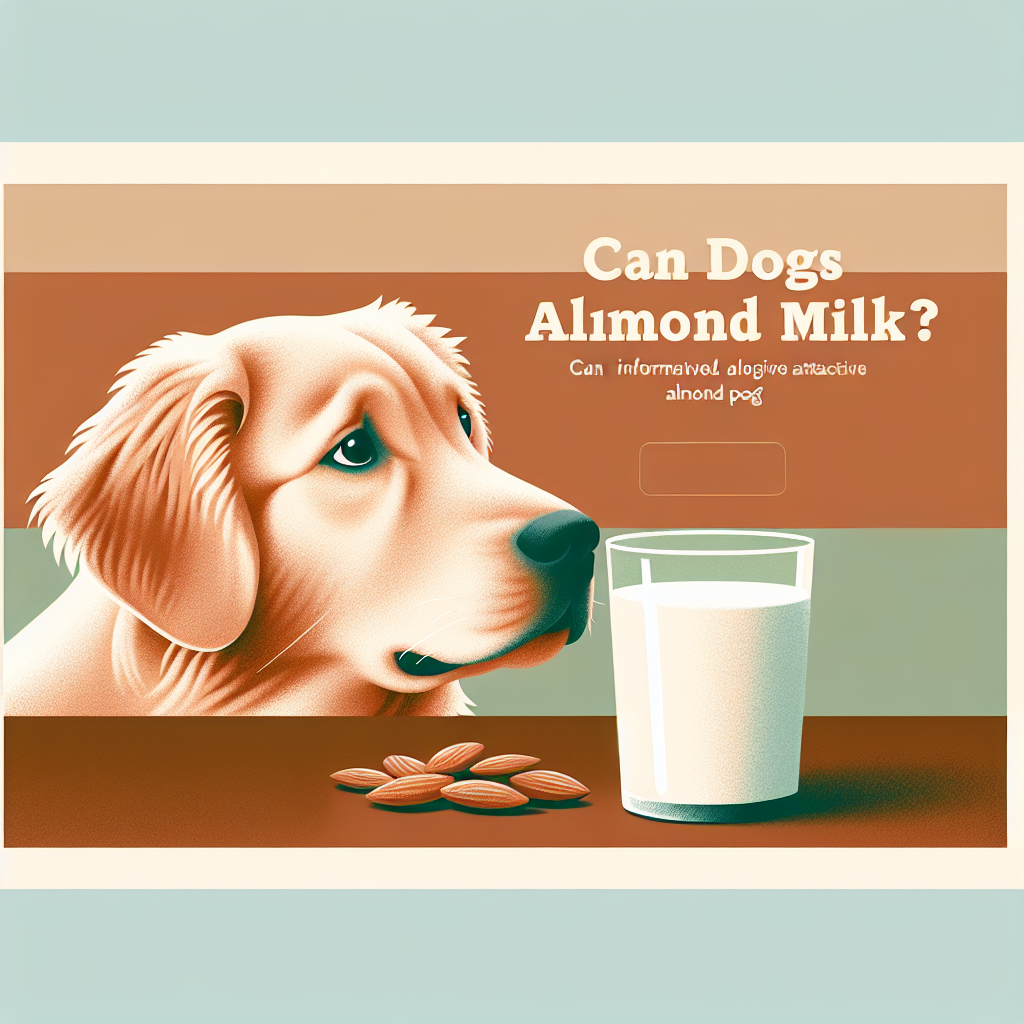As pet owners become increasingly aware of nutrition and dietary choices, several questions arise regarding what human foods and beverages are safe for their furry companions. One such inquiry that has gained popularity is: "Can dogs have almond milk?" In this article, we will delve into the safety of almond milk for dogs, its potential benefits, and what precautions pet owners should take.
What is Almond Milk?
Almond milk is a plant-based milk alternative made by grinding almonds and mixing them with water. It’s often touted for its low-calorie count and is frequently used as a substitute for cow’s milk in various recipes. Its popularity has surged in recent years, especially among those who are lactose intolerant or looking for vegan options.
Is Almond Milk Safe for Dogs?
Generally, almonds are not toxic to dogs, but they can pose some risks. While the primary concern with whole almonds is that they can get lodged in a dog’s throat or cause gastrointestinal distress, almond milk made from processed almonds usually has lower risks.
Most almond milk on the market is safe for dogs in moderation, provided it is plain and unsweetened. However, there are a few key considerations:
1. Sugar and Additives
Many commercial almond milks contain additives such as sugar, flavors, and preservatives that are not suitable for dogs. These additives could lead to gastrointestinal issues or other health problems.
Recommendation: Always choose unsweetened and unflavored almond milk for your dog to minimize any adverse effects.
2. Toxic Ingredients
Some almond milk products may include ingredients that are harmful to dogs, such as xylitol, a sugar substitute. Xylitol is highly toxic to dogs and can cause a rapid drop in blood sugar levels, leading to seizures or even liver failure.
Recommendation: Check the ingredient list carefully before offering almond milk to your dog, and avoid brands that contain xylitol or other toxic additives.
3. Lactose Intolerance
Dogs, like some humans, may be lactose intolerant. While almond milk doesn’t contain lactose, its creamy texture may lead some dogs to develop an upset stomach or diarrhea.
Recommendation: Introduce any new food slowly into your dog’s diet to monitor for any adverse reactions.
Potential Benefits of Almond Milk for Dogs
If given in moderation, plain, unsweetened almond milk can provide certain benefits:
- Hydration: Almond milk can serve as an additional source of hydration, especially for picky drinkers.
- Nutrients: Almond milk is fortified with vitamins such as vitamin D and calcium, which can contribute to bone health.
- Low-Calorie Treat: For dogs on a restricted diet, unsweetened almond milk can be a low-calorie treat option when used as a topping for their food or as part of homemade dog treats.
How to Serve Almond Milk to Your Dog
If you decide to offer almond milk to your dog, here are some simple serving suggestions:
- As a Beverage: A small amount can be offered in their water bowl as a change of pace.
- In Treats: Use it in homemade dog treat recipes for added flavor and moisture.
- Mix with Food: You can drizzle a little over their regular food to encourage eating.
Conclusion
In conclusion, while dogs can have almond milk in moderation, pet owners should exercise caution. Always choose unsweetened varieties without harmful additives, and monitor your dog for any signs of discomfort or allergic reactions. If you’re ever in doubt about introducing new foods or drinks into your dog’s diet, it’s always best to consult with a veterinarian. Your furry friend’s health and well-being should always be the top priority!





